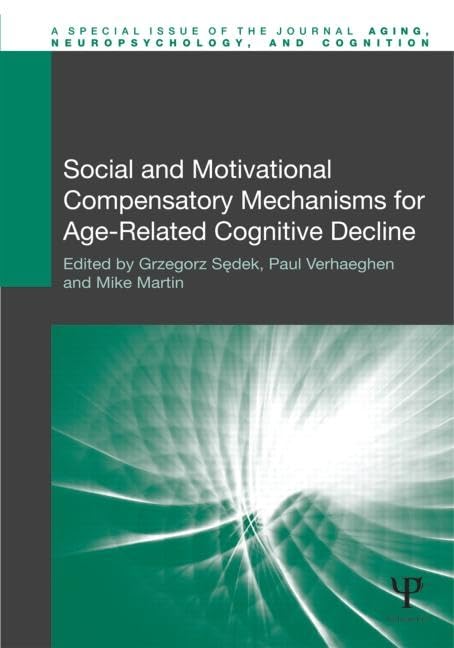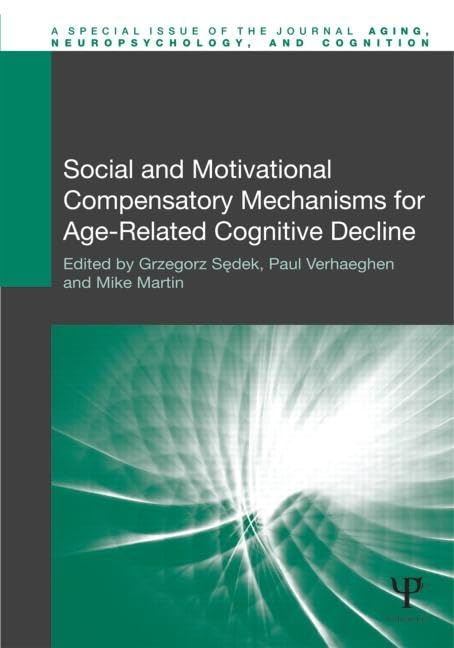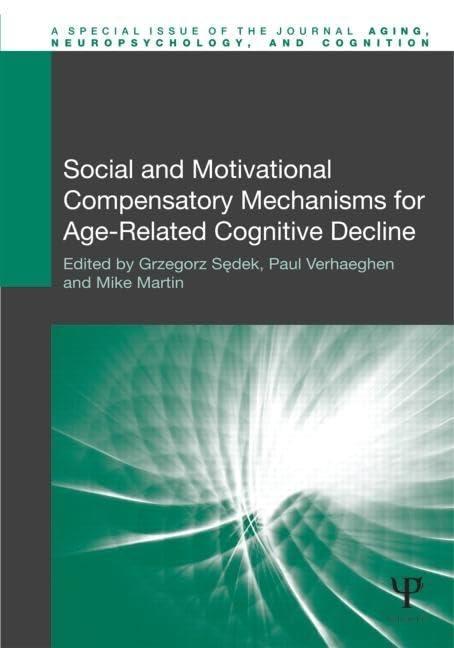Social and Motivational Compensatory Mechanisms for Age-Related Cognitive Decline: A Special Issue of the Journal Aging, Neuropsychology and Cognition ... of Aging, Neuropsychology and Cognition)
Social and Motivational Compensatory Mechanisms for Age-Related Cognitive Decline: A Special Issue of the Journal Aging, Neuropsychology and Cognition ... of Aging, Neuropsychology and Cognition) is backordered and will ship as soon as it is back in stock.
Couldn't load pickup availability
Genuine Products Guarantee
Genuine Products Guarantee
We guarantee 100% genuine products, and if proven otherwise, we will compensate you with 10 times the product's cost.
Delivery and Shipping
Delivery and Shipping
Products are generally ready for dispatch within 1 day and typically reach you in 3 to 5 days.
📘 Book Details
-
Author: Sedek, Grzegorz
-
Publisher: Routledge
-
Language: English
-
Edition: 1
-
ISBN: 9781848727601
-
Pages: 346
-
Cover: Hardcover
-
Dimensions: 9.8 x 6.8 x 1.0 inches
📝 About the Book
Compensatory Mechanisms in Cognitive Aging by Grzegorz Sedek is a groundbreaking exploration of how the human mind adapts to cognitive decline through strategic and functional compensations. This volume brings together a wide range of research examining compensatory processes across various domains of cognition, including perceptual functions, text comprehension, dual-task performance, and both episodic and prospective memory.
Originally published as a special issue of Aging, Neuropsychology and Cognition, the book offers a rich interdisciplinary perspective on how older adults maintain cognitive performance despite neurological and functional changes. Through detailed empirical studies and theoretical insights, Sedek and contributing scholars present compelling evidence that compensatory mechanisms play a critical role in sustaining cognitive functioning in the face of aging.
This work is particularly valuable for cognitive scientists, psychologists, gerontologists, neuroscientists, and anyone studying aging and brain plasticity. It also provides practical insights for those involved in cognitive rehabilitation and aging-related policy development.
With its rigorous analysis and forward-looking approach, Compensatory Mechanisms in Cognitive Aging offers a vital contribution to the understanding of resilience in aging minds and the pathways to healthy cognitive aging.





